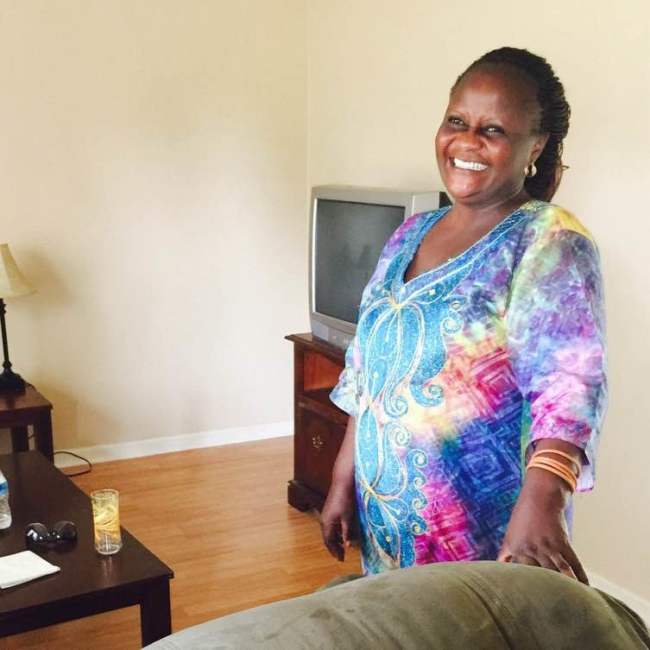Twenty-three year old Riziki Nzibonera, married and living in the Democratic Republic of Congo, faced a difficult situation. Spurred on by the rages of war, her husband’s family (members of the Mai-Mai tribe) had begun to abuse her; she belonged to another tribe whom they perceived to be an outsider. In this circumstance, combined with the stresses of living in a warzone, Riziki and her husband decided that protecting their toddler and unborn child would require a drastic measure. In 1996, they fled to Tanzania.
After being processed at the Tanzanian border, Riziki and her husband were transferred to the United Nations High Commission for Refugees (UNHCR). From there they traveled by train to a refugee camp where she says they were given, “a few sticks, a tent, and a plot to put it.”
Life in the refugee camps was difficult, largely because of the challenge of finding ways to provide for their family beyond the meager aid supplies. This hardship of relocation wouldn’t remain singular for long, though. As Riziki puts it, “By the grace of God I gave birth, but it was very weak. After a year and three months, I lost the child.”
This loss was compounded by conflict with her husband’s family, who had also sought refuge in Tanzania. After hearing about the child’s death, they accused Riziki of being unable to birth healthy children. Perhaps due to his family’s influence, her husband became abusive again, and he beat her frequently.
Still, Riziki persevered. She became a nurse in the refugee camp and used that income to provide clothes and food for her family beyond the small rations from UNHCR. She gave birth to two more children, all while negotiating the complexities of life in a refugee camp with an abusive husband.
During Riziki’s fifth pregnancy, her husband beat her into unconsciousness. He was arrested, promptly escaped, and fled back to the Congo. Riziki has not seen him since.
Several times her in-laws pressed for custody of the children. In order to protect her family from yet another threat against their unity, in 2004 Riziki made another life-changing decision: she applied for resettlement in the United States. It would take seven years of patient endurance for the request to be processed. In 2011 her family was granted protective status.
On April 29, 2015, nearly a decade since her initial resettlement application and nearly two decades since fleeing her country, Riziki and four of her children arrived in Lexington, Kentucky. (Her eldest son joined them a few weeks later.) Since KRM case worker Lauren received the family at Blue Grass Airport, they have been busy starting their new lives here in Lexington.
Riziki and her son are waiting for the documentation necessary for them to begin working, and her younger children are eagerly waiting to start school in the fall. In the meantime, Riziki is putting her nursing experience to good use by helping her neighbor, a fellow Congolese refugee, recover from a recent surgery.
[Above photo: Riziki, in her home in Lexington, celebrated the arrival of her son Elvis in May 2015.]
World Refugee Day is commemorated on June 20th as a way to celebrate the strength and resilience of refugees around the world, and also to raise awareness of what they bring to their resettlement communities.
